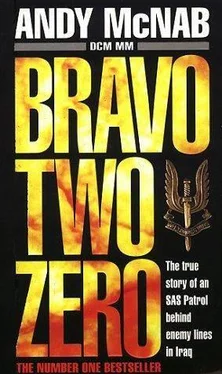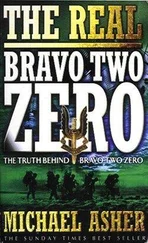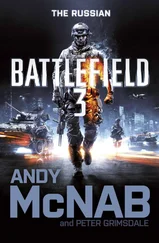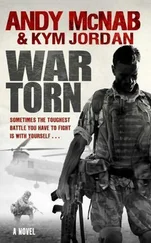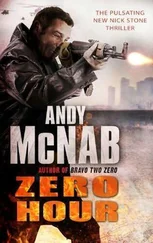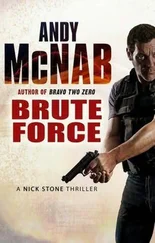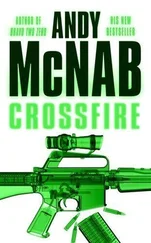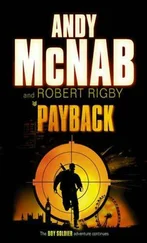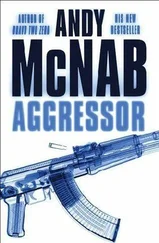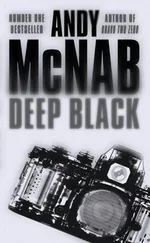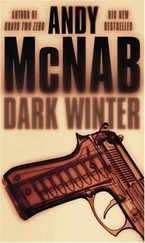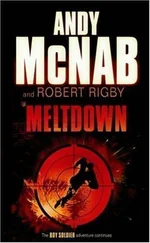I wanted to keep the conversation going, but our Arabic wasn’t quite up to it. Even as I spoke, I couldn’t believe what I heard myself saying next.
“Wayn al souk?” I asked.
Here we were, in the middle of nowhere, and I was asking him the way to the market.
He didn’t bat an eyelid, just pointed south.
“Good one,” Dinger said. “At least next time we’re here we’ll know the way to Sainsbury’s.”
Bob spotted a bottle in the old boy’s satchel. “Halib?” he asked.
The goatherd nodded that yes, it was milk, and passed the bottle around. Then he got out some smelly, minging dates from the bag and a bit of old bread, and we sat down and played the white man.
Mark stayed on his feet, having a casual look around. “He’s on his own,” he said, all smiles.
The goatherd pointed south again and waved his hand. “Jaysh,” he said, “jaysh.”
I raised a quizzical eyebrow at Bob.
“Army,” he translated. “Militia.”
Bob asked: “Wayn? Wayn jaysh?”
The old boy pointed back the way we had come.
We couldn’t understand if he meant: there’s loads of soldiers down there; or there’s loads of soldiers down there, and they’re looking for you; or are you with the soldiers from the jaysh back there? None of us could remember the Arabic for distance. We tried to do signs for far away and close.
All in all it was quite funny. There we were, sitting having a cosy kefuddle in the middle of the desert, in weather that was so bad we had nearly frozen to death.
We carried on with this for about half an hour, but we were getting to the point where a decision had to be made. Did we kill him? Did we tie him up and keep him until we moved out? Or did we just let him go and do his own thing? The only benefit to be gained by killing him was that nobody else would then know what was going on. But if the countryside was littered with the corpses of elderly members of the indigenous population and we got caught-which we had to assume was likely-then we could hardly expect red carpet treatment at the hands of our captors. If we tied him up to keep him out of play, he would be dead by first light anyway because of the cold. There was little doubt his body would be discovered. It looked as though every square foot of this country was patrolled by goats and herders.
If we let him go, who could he tell, what harm could he do? He had no transport, and as far as Mark could make out he was on his own. It was about 1600 hours now, and it would soon be last light. Even if he raised the alarm, by the time there was any reaction it would be dark and we’d be legging it towards the border. We might as well let him go. It was the SAS we were in, not the SS.
We made up our minds that when he decided to go, we’d watch him, wait until he got out of sight, then we’d put in a deception plan south.
Five minutes later he was giving his goodbyes, and off he shuffled with the goats, not a care in the world. We let him go for about a half mile until he disappeared into some dead ground, then we moved off. We went south for a few miles, then turned west.
We came into a small depression and stopped to take stock. There were several factors to discuss. First was our water supply. We had enough food to last us another couple of days, but we were almost out of water. Second, we had to assume that the enemy knew where our last LUP was from the night before, so they knew our direction of travel. Third, we’d had another compromise-I was already thinking that we should have kept him with us until last light before letting him go. We were still in bad physical shape, and the weather would get very bad up on the high ground. We had nearly died the night before, and I didn’t want to take another chance. We had lost a night’s march and didn’t want to lose another. All in all, the situation was not very good, and we probably hadn’t done ourselves any favors by letting the old boy go. But what was done was done.
We went through the options that we had left to us as a patrol. One, to keep west, hoping to find water on the way: the chances were good on the high ground due to the snow and ice. Two, to head north to the river and then head west, but we were a large number and concealment would be a problem because the closer we got to the border, the more habitation there was going to be. Three, to hijack a vehicle and drive for the border that night. It was 1715 and starting to get dark. Given the amount of enemy activity and our physical condition, we decided to go for the vehicle hijack, any time after last light. The sooner the better.
We were going to have some major drama tonight, one way or another. Before moving down towards the road we carried out a weapon check. One man at a time, we pulled the working parts out, slapped on some oil, and made sure everything was ready.
I scanned the road through my binos. We wanted to have an area where we could come out and be more or less straight on top of them, so they couldn’t see us coming. I spotted a small mound on a patch of high ground that would do the trick.
The plan was that Bob would play the cripple, leaning on my shoulder, and I’d wave down a good Samaritan. To make us look even more harmless we’d leave our weapons and webbing with the others. They would come out, do the hijack, and away we’d go. We’d been looking at nothing but lorries and Land Cruisers for six hours. Depending on the type of vehicle, we could go cross-country-heading south until we hit the pylons and then following them west-or take our chances on the road.
The road was half an hour’s tab away. We got to the highish ground just on last light. Legs found a purpose-made ditch in the area to the right of the road, and we all piled in. We had a good view to the southeast because the road was long and straight for a number of miles and we were on high ground looking down. To the northwest, however, there was a small crest about 900 feet down the road. We wouldn’t have much time in which to react if the vehicle came from that direction. Bob and I would try to stop it right opposite the ditch so the lads could just jump up and give them the good news.
We sat there with the binos out, looking to the east. Two trucks moved along the road and then went off in the general direction of our last LUP. Because of the low light I couldn’t see whether people were getting out, but there appeared to be general activity on both sides of the road. They were obviously looking for something, and I took it to be us. After a while the vehicles came back onto the road and started to move towards us.
Fuck! Was this the follow-up from the night before? Either we were lucky that we had moved, or unlucky that we hadn’t held the old boy and had let him go and bubble. But he had gone in totally the opposite direction to the one these troops were coming from. It didn’t make sense.
We watched the lights coming nearer, and then we could hear the engine grinding up the hill. We got our heads down, just hoping that the elevation of the trucks would not give any blokes in the back the chance to see down into the dip.
We waited. As soon as we heard the trucks stop opposite us, we’d be up and firing. We had nothing to lose.
They drove straight past. Big grins all round.
Bob and I moved up onto the road and sat watching in both directions. After about twenty minutes, vehicle lights came over the small crest and drove towards us. Satisfied that it was not a troop truck, we stood up. The vehicle caught us in its headlights and slowed down to a halt about 10 feet down the road. I kept my head down to protect my eyes and to hide my face from the driver. Bob and I hobbled towards it.
“Oh shit,” I muttered into Bob’s ear.
Of all the vehicles in Iraq that could have come our way that night, the one we had chosen to hijack and speed us to our freedom was a 1950s New York yellow cab. I couldn’t believe it. Chrome bumpers, whitewall tires, the lot.
Читать дальше
